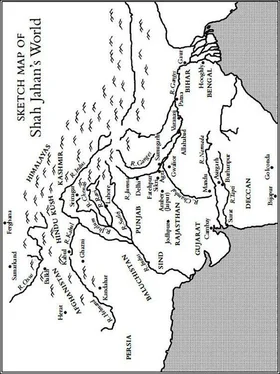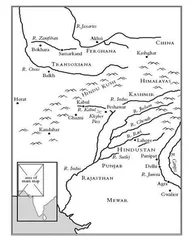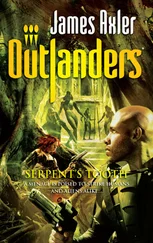Alex Rutherford - The Serpent's tooth
Здесь есть возможность читать онлайн «Alex Rutherford - The Serpent's tooth» весь текст электронной книги совершенно бесплатно (целиком полную версию без сокращений). В некоторых случаях можно слушать аудио, скачать через торрент в формате fb2 и присутствует краткое содержание. Год выпуска: 2013, ISBN: 2013, Издательство: Review, Жанр: Исторические приключения, на английском языке. Описание произведения, (предисловие) а так же отзывы посетителей доступны на портале библиотеки ЛибКат.
- Название:The Serpent's tooth
- Автор:
- Издательство:Review
- Жанр:
- Год:2013
- ISBN:9780755383290
- Рейтинг книги:3 / 5. Голосов: 1
-
Избранное:Добавить в избранное
- Отзывы:
-
Ваша оценка:
- 60
- 1
- 2
- 3
- 4
- 5
The Serpent's tooth: краткое содержание, описание и аннотация
Предлагаем к чтению аннотацию, описание, краткое содержание или предисловие (зависит от того, что написал сам автор книги «The Serpent's tooth»). Если вы не нашли необходимую информацию о книге — напишите в комментариях, мы постараемся отыскать её.
The Serpent's tooth — читать онлайн бесплатно полную книгу (весь текст) целиком
Ниже представлен текст книги, разбитый по страницам. Система сохранения места последней прочитанной страницы, позволяет с удобством читать онлайн бесплатно книгу «The Serpent's tooth», без необходимости каждый раз заново искать на чём Вы остановились. Поставьте закладку, и сможете в любой момент перейти на страницу, на которой закончили чтение.
Интервал:
Закладка:

Alex Rutherford
The Serpent's Tooth
Part I
‘A thousand times good night!’
Romeo and Juliet, Act 2, Scene 2Chapter 1
Agra Fort, northwestern India, 1628
The glint of the sunlight on the dagger’s serrated blade caught Shah Jahan’s eye at the last moment. As he flung up his right arm to protect his neck, he felt the blade slice into the muscle just below his elbow. Blood immediately began to drip down on to his silver throne. Launching himself with such force that the throne went crashing backwards, he seized the arm of his assailant before he could strike again. Using all his strength he threw the man, who was only slight, on to the marble dais on which his throne had stood. As his attacker hit the marble with a crash, the impact knocked his purple turban from his head and loosened his grip on his dagger. Twisting his assailant’s hand back so hard that he heard the crunch as the wrist broke, Shah Jahan wrenched the weapon from his grasp and dropped with both knees and all his weight on to his would-be assassin’s chest. Immediately his green-clad bodyguards were around him, but he knew that they would have been too late to save him.
As he got to his feet again the soles of Shah Jahan’s sandals crunched on rubies and turquoises dislodged from the silver throne by its fall. He looked hard at his attacker, whom his guards had first dragged roughly to his feet and then, after pulling his arms out tight behind him, kicked to his knees. Shah Jahan half recognised his assailant who was dressed in court garb and appeared no more than a youth.
‘Who are you? Why did you attack your emperor?’
At first the young man did not respond, then a black-bearded bodyguard kicked him hard in his kidneys, twice. ‘Ismail Khan, nephew of Jani. She died because you killed her husband, your own half-brother Khusrau. She could not live without him. I owed vengeance to her. She took me into her family when my parents died.’
Yes, of course, Ismail Khan … After his accession he had allowed him to remain at court at his own wife Mumtaz’s pleading. Clearly he had been too generous, even naive to believe that the divisions of the civil war in which he had come to the throne could be quickly or easily healed. Increasingly aware of the pain in his right arm, he looked down. The gashed gold cloth of his tunic was soaked in blood. It was trickling down his hand and fingers on to the white marble to form a small crimson pool. He must have the wound attended to quickly. He raised his arm to stem the blood flow as he had done when injured in battle. ‘Have no doubt you will die, Ismail Khan, but first you will have a little time to fear death and to repent of your actions while I have the wound you caused your rightful emperor dressed. The manner of your execution will depend on what you tell me of your accomplices.’
‘I confess, Majesty.’ An hour later Ismail Khan was once more on his knees before Shah Jahan — this time in the parade ground outside the Agra fort.
‘What else can you do? You were caught in the act,’ retorted Shah Jahan. By an effort of will he had remained impassive while his hakim had used his needle to place ten stitches into the dagger slash in his forearm before smearing it with neem ointment and binding it tightly. The wound was still stinging but — as the continuing pure whiteness of the cotton bandages attested — no longer bleeding. It should soon heal. Unless … serrated weapons like Ismail Khan’s lent themselves to poison. ‘Did you poison your dagger blade?’
‘No, Majesty,’ Ismail Khan responded immediately, shock on his young face. ‘No, I would not do so. It would be as dishonourable as your action in sending henchmen to kill Khusrau, already blinded by his father … I wanted to strike cleanly, in person, as a man.’
Even if he was scarcely the age to claim the status of manhood, Shah Jahan could not but admire the youth’s courage, relieved as he was that he would live to fulfil those great ambitions he had had when crowned the fifth Moghul emperor only five months ago. Nevertheless, there could be no mercy, no pity, for any who dared attack the emperor. Ismail Khan must die. But first he must reveal his fellow conspirators.
‘Who helped you? You couldn’t have got through my bodyguards without some assistance.’
‘I had no help. I acted from family honour.’ There was defiance in Ismail Khan’s young eyes now, and his beardless chin jutted forward. ‘I take all responsibility. I knew that even if I succeeded, I would not escape alive. Your death would have been no crime, but just punishment for your sins. In killing you I would have been fulfilling God’s wishes.’
Looking into Ismail Khan’s face, Shah Jahan saw a martyr’s self-righteous determination. He was almost certainly the sole instigator and inspiration for the attack. Although he must have had junior accomplices, not even torture would be likely to make him reveal them. Why delay then? ‘Executioner, do your work.’
The executioner stepped forward from where he had been waiting just behind Shah Jahan. He was a burly man dressed in red with a red leather apron and had already unsheathed his sword, two feet long and curving slightly towards the tip. Quickly one of his assistants spread a jute mat on the ground. Two of the guards pushed Ismail Khan forward on to it. ‘Extend your neck,’ the executioner commanded. Moments later his sword flashed in the sunlight above Ismail Khan just as the youth’s own dagger had done above Shah Jahan, but Ismail Khan’s fate was set. His arms were pinioned and he could not raise them to protect himself. The sword swiftly sliced into the smooth skin and soft flesh of his young neck and then scrunched through the bone and sinew, severing head from torso. For a moment the head with its now sightless but still open eyes rolled towards Shah Jahan, but almost before blood had ceased to spurt from the crumpled body two of the executioner’s assistants had gathered body and head into the jute mat and were carrying them away.
The crowd who had quickly assembled around the edge of the parade ground, and were being held back by the spear shafts of some of his men, cheered. Shah Jahan took little comfort from their enthusiasm. Life had taught him that the people’s affections were fickle and that if fate went against him they would readily enough cheer his own execution. He must ensure it did not. Therefore, although he had granted Ismail Khan a dignified death, he could not spare his soulless body indignities. Raising both arms to command silence, he spoke. ‘So will I reward all traitors whatever their status, however close to me in kinship or in favour. To remind my subjects great and humble of their fate, have Ismail Khan’s body quartered and a portion placed at each corner of the marketplace until it rots. Have his head impaled for ever above the main gate of the fort.’
The crowd roared as he knew it would and at what he suspected was the instigation of some of his officers began to chant, ‘Zinderbad Padishah Shah Jahan. Long live the Emperor Shah Jahan.’
Shah Jahan was still not finished. While his arm was being stitched he had asked Kamran Iqbal — his companion during both his long estrangement from his father and his subsequent fight for the throne against his half-brothers Khusrau and Shahriyar — to identify and arrest the guards through whom Ismail Khan had broken to attack him. He was sure at least one would prove to be an accomplice.
‘Bring the prisoners,’ he instructed. A few minutes later two men dressed in the Moghul green of his bodyguard, but with their steel breastplates and helmets removed and their arms tied at the wrist, emerged from a low gateway in the fort walls and surrounded by an armed group of their comrades marched towards him. As they were halted a few yards in front of him, he recognised both. The first was Hari Singh, a member of a military family from Lahore whom he had taken into his service from that of Shahriyar on the pleas of the man’s grandfather, a veteran of his own grandfather the Emperor Akbar’s campaigns. The second, a grizzled Uzbek, Majid Beg, had been in Shah Jahan’s armies for many years. Both looked composed.
Читать дальшеИнтервал:
Закладка:
Похожие книги на «The Serpent's tooth»
Представляем Вашему вниманию похожие книги на «The Serpent's tooth» списком для выбора. Мы отобрали схожую по названию и смыслу литературу в надежде предоставить читателям больше вариантов отыскать новые, интересные, ещё непрочитанные произведения.
Обсуждение, отзывы о книге «The Serpent's tooth» и просто собственные мнения читателей. Оставьте ваши комментарии, напишите, что Вы думаете о произведении, его смысле или главных героях. Укажите что конкретно понравилось, а что нет, и почему Вы так считаете.











